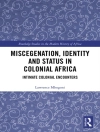This collection of essays explores the nature and dynamics of Ireland’s land questions during the nineteenth and twentieth centuries, and also the ways in which the Irish land question has been written about by historians.
The book makes a vital contribution to the study of historiography by including for the first time the reflections of a group of prominent historians on their earlier work. These historians consider their influences and how their views have changed since the publication of their books, so that these essays provide an ethnographic study of historians’ thoughts on the shelf-life of books exploring the way history is made.
The book will be of interest to historians of modern Ireland, and those interested in the revisionist debate in Ireland, as well as to sociologists and anthropologists studying Ireland or rural societies.
Table of Content
Introduction and acknowledgements – Fergus Campbell
SECTION ONE: SURVEYS
1. Irish land questions in the State of the Union – Gearóid Ó Tuathaigh
2. Gaining ground, losing ground: The politics of land reform in twentieth-century Ireland – Tony Varley
SECTION TWO: REFLECTIONS
3. The Irish land question in a wider context – Barbara Solow
4. Writing about Irish land against the backdrop of Northern Ireland – Philip Bull
5. Strange bedfellows? The Land League Alliances – Samuel Clark
6. The issue of land redistribution: Revisiting Graziers, Land Reform and Political Conflict in Ireland – David Jones
7. Land and Revolution revisited – Fergus Campbell
SECTION THREE: NEW RESEARCH
8. De-centering the Irish land war: Women, politics and the private sphere – Heather Laird
9. The transcendent role of Catholic discourse in the Irish Land War – Anne Kane
10. Matthew Harris, Fenianism and land agitation in the West of Ireland – Gerard Moran
11. The politics of “holding the balance”: Irish farmers’ parties and land distribution in the twentieth century –Tony Varley
Index
About the author
Tony Varley is Senior Lecturer in the School of Sociology and Political Science at NUI Galway












